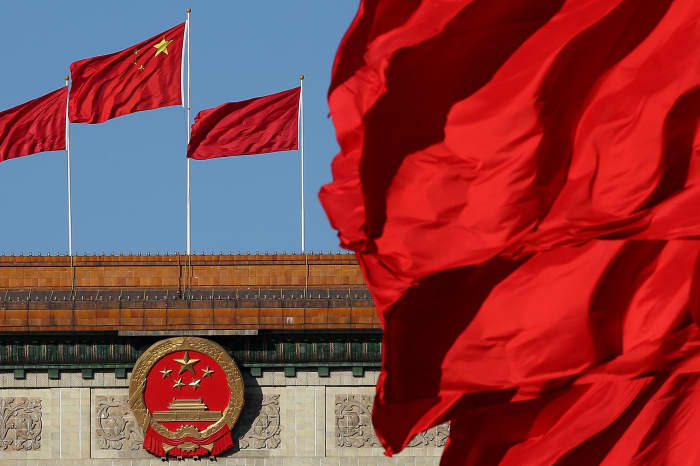Chinese equities slumped Thursday, with exchange-traded funds that target stocks in the country seeing sharp drops amid concerns over the world’s second largest economy.
The iShares MSCI China ETF MCHI, which has $8 billion of assets under management, closed 3% lower Thursday, according to FactSet data. The KraneShares CSI China Internet ETF KWEB, with $6 billion of assets, fell 4.2%.
“China’s economy is not doing well despite the stimulative efforts of its government and default-avoidance efforts of its largest property developer,” Yardeni Research said in a note Thursday. “We’ve long thought that the government ultimately will have to sponsor a debt restructuring program if it hopes to put China’s leverage problems in the rearview mirror anytime soon.”
ETFs focused on Chinese stocks are vastly underperforming U.S. and global equities this year, with the iShares MSCI China ETF down 7.4% through Thursday, FactSet data show. Meanwhile, the iShares MSCI ACWI ETF ACWI, which tracks stocks in the developed and emerging markets, has jumped 12.3% this year while the S&P 500 SPX has surged 15.9%.
The iShares MSCI China ETF, which tracks an index of Chinese shares, has struggled over the past couple years. The fund plunged more than 24% in 2022 after tumbling more than 22% in 2021, according to FactSet data.
Read: China’s yuan heads for multiyear lows versus dollar as sentiment darkens
Meanwhile, the Xtrackers CSI 300 China A-Shares ETF ASHR, with around $2 billion of assets under management, closed 2.4% lower Thursday, FactSet data show. The fund has dropped 7.7% so far this year.
Some smaller ETFs focused on Chinese stocks also slumped on Thursday.
For example, the Invesco Golden Dragon China ETF PGJ, with around $183 million of assets, finished down 3.9%, while the Rayliant Quantamental China Equity ETF RAYC, which manages about $85 million, dropped 2.5%, according to FactSet data.
Looking at the China MSCI stock price index, Yardeni said that the forward price-to-earnings ratio has recently fallen to 10 from a peak of 18.3 in February 2021.
“The index’s valuations have fallen into the single digits during times of extreme stress in the past, and unless the Chinese government proactively works to reduce the leverage in its economy, more distressed valuations may be coming,” the firm cautioned in its note.







